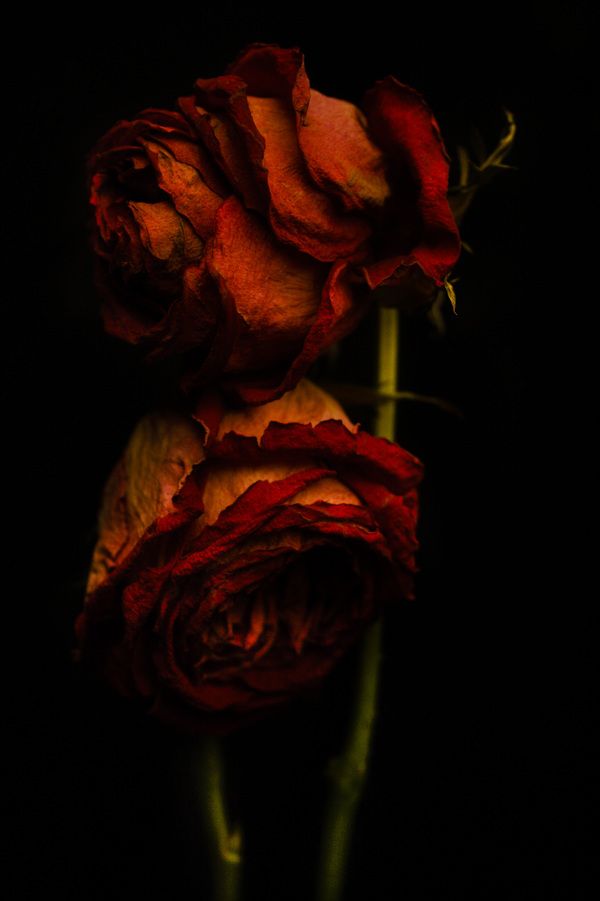FWP:
SETS == A,B; EXCLAMATION; FILL-IN
Who or what died, in the deceit/delusion of a 'wave of color'? The first line has been made so broad that anything or anybody can be included. Ideals? Naive illusions? Innocent hearts? And was it a deliberate 'deceit' or trick, or merely a private 'delusion' or dream? And was the 'wave of pleasure/color' something the victim saw in the rose, or something the victim himself experienced when he contemplated the rose? We, the readers, are allowed-- and required-- to fill in the blank for ourselves. We know only that 'whatever/whoever was', has 'died'.
Then of course in an 'A,B' verse like this one, we also have to decide for ourselves what relationship exists between the two lines. (Did the lament cause the death? Did the death cause the lament? Are the situations in the two lines similar? Are they contrasted? And so on.)
One death that surely can't be overlooked is that of the rose itself. The rose is most colorful, most brilliant, most sensuous, most perfumed, most irresistible in its full-bloomingness, just before it dies. Thus it's easy to believe that what looks like a 'wave of color' is really a lament from a 'bloody-voiced lip', as the rose grieves over its own approaching end, and/or the suffering of its lovers.
'Bloody-voiced lip' sounds so powerful in English, and it's also exactly literal-- how often does the translator get such a break? The i.zaafat structure in the second line thus becomes not only long but also unusually complex: 'lament of (lip of bloody-voice) of rose'. Should ;xuunii;N-navaa thus be treated as a sort of adjective-noun 'inverted izafat' construction? For more on this kind of thing, see {129,6x}.
The commentators point out that the 'dying' of the infatuated
lovers may be metaphorical ('I'm dying to be with her!') rather than literal.
But the dying of the rose herself is all too imminent, and all too real. Thus
the lament in the second line is also genuine, no matter what else it may
be. In its inshaa))iyah
glory, the line is a wonderful showcase for lahjah , 'tone of
voice'. For what is the tone of the 'oh alas' that the speaker exclaims when thinking of the rose's lament? Is it ironic, despairing, amused, amazed, contemptuous, sympathetic?
You decide. It's almost as protean as the second line of {17,8}. The 'oh alas' also constitutes, in its own right, one more 'lament'.

Nazm:
'To die' means the extremity of infatuation. That is, people consider the bloody voice and blood-dripping lament of the rose to be a wave of color, and are becoming captivated. (81)
== Nazm page 81